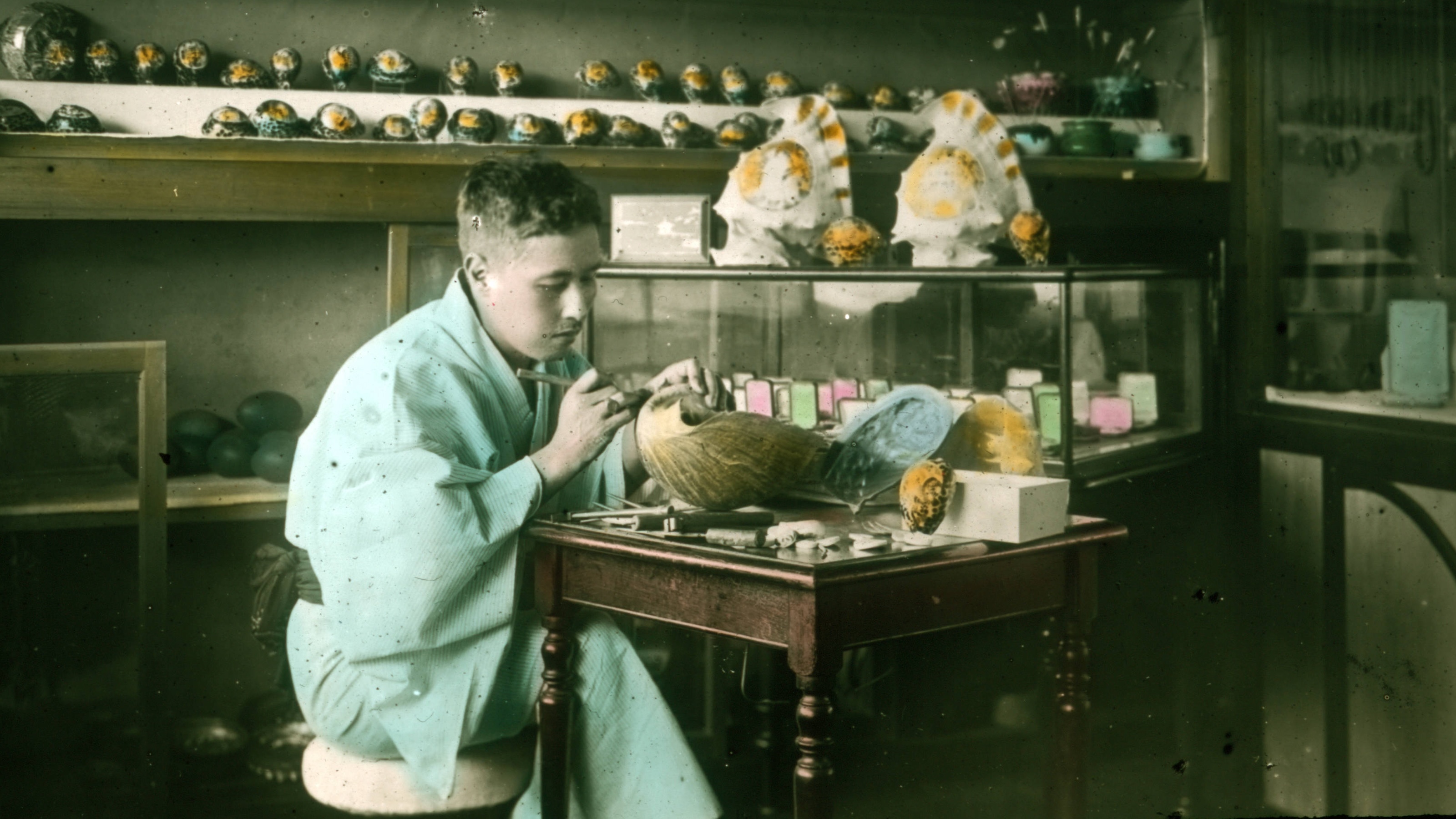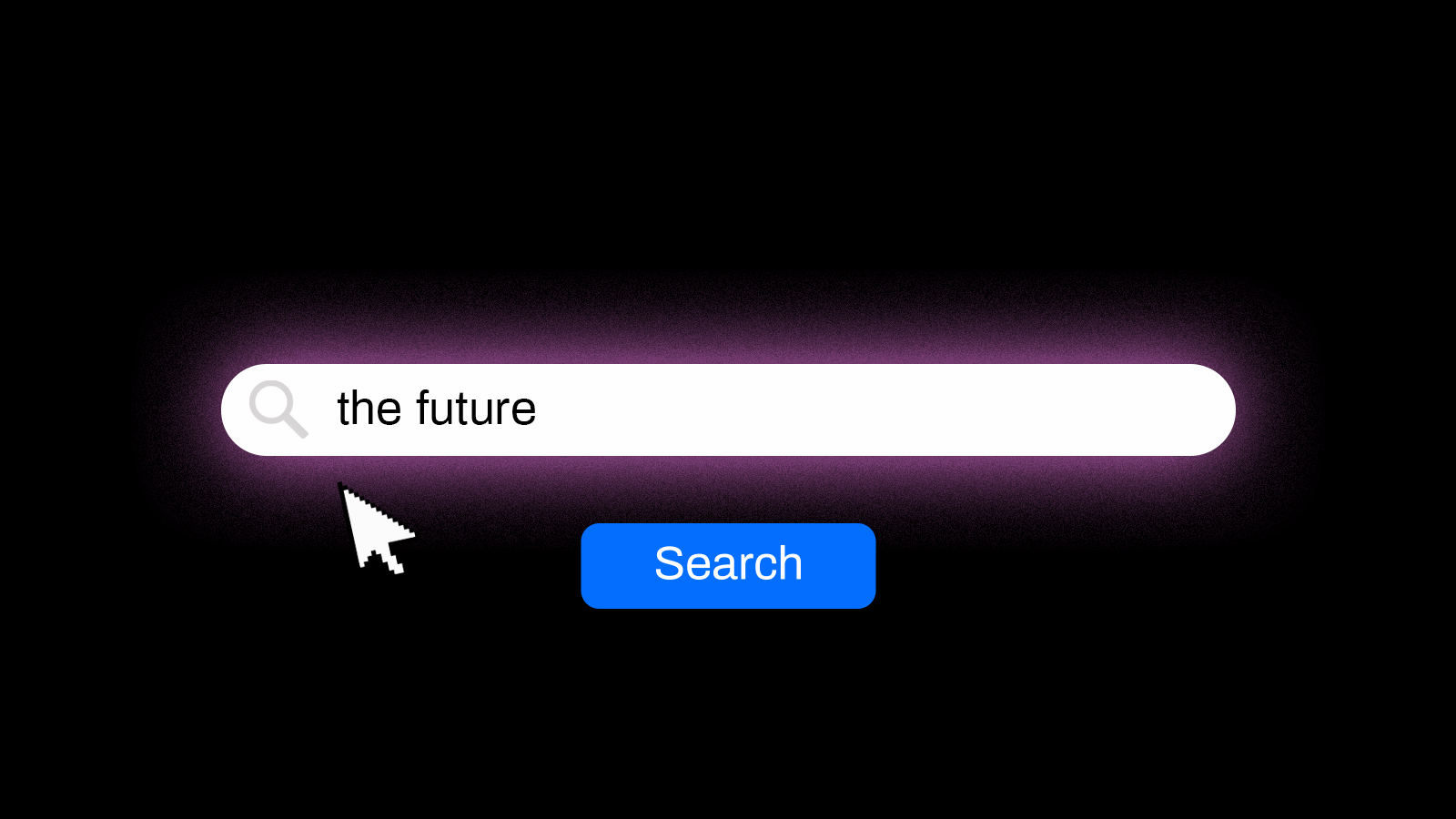A conversation with the sex advice columnist.
Dan Savage: My name is Dan Savage and I'm an advice columnist.
Question: Why is it so important for gay teenagers to hear stories from gay adults?
Dan Savage: LGBT teenagers are lied to about what it is to be a gay or lesbian or bi or trans adult. They’re misinformed. They’re not just bullied at school by their peers, they’re bullied at home by their parents all too often—and all too often then dragged off to churches on Sunday for more bullying from the pulpit. And it’s important then for gay and lesbian adults to reach out to these kids and share our stories, so that they can picture futures for themselves that are happy, that are worth sticking around for. When a 13 year-old kills himself because he is gay, what is he saying is: "I can’t picture a future for myself with enough joy in it to compensate for the pain I'm in now." And gay and lesbian and bi and trans adults, we need to share our stories with these kids so that they can picture those futures, not one future. That is why there's thousands of videos up on the website from all different kinds of gay and lesbian, and bi and trans people or picture a future for themselves, that is happy, where they’re reconciled to the families even if their families are homophobic now and will compensate for the pain that they’re in now. And historically, up to this moment, gay and lesbian adults didn’t feel comfortable talking to LGBT teenagers about our realities because we didn’t want to be accused of being pedophiles, accused of recruiting. And it wasn’t really until YouTube came along and this kind of social media that we could talk to them directly, reach them in their own homes without being accused of recruiting, really, or trying to touch them in inappropriate ways. We’re just trying to touch their hearts.
I've said in the past when I've talked about coming out, I've talked about enduring high school, enduring middle school, homophobic families... that for gay men and lesbians and bi and trans folks, the coming out process is really our hero’s journey. And it often is the only thing that is common across all classes, races, sexual orientations. Well, that doesn’t make any sense. It’s the one unifying experience in the LGBT life. We’re not all from the same religious backgrounds, racial backgrounds, economic backgrounds; but we all share this experience of suffering, really, almost invariably. And coming out and healing and to see these stories even as a gay adult is really touching, and for gay kids to see these stories when they’re in the midst of their hero’s journey really—when they’re being persecuted, when they’re suffering—to see people who emerged on the other side and are happy and are healthy and are you know have rewarding careers, which does not mean necessarily financially rewarding careers. They’re doing things they love, they have people in their lives that they love, is wonderful and gay people are really just waiting for permission to share these stories.
I felt forever that I’d hear about a gay kid committing suicide and I’d think I wish I could have talked that kid for five minutes. I would have been able to tell him it gets better, but I couldn’t talk to those kids. I couldn’t talk to kids in Greensburg, Indiana or small towns in Texas and small towns in California. I didn’t have permission. Their schools, their parents, their churches aren’t going to bring in openly gay adults to talk to bullied gay kids about our lives and that it is wonderful to be an openly gay adult. And what is happening now is gay and lesbian and bi and trans people all over the world woke up and realized we didn’t need anyone’s permission anymore to talk to these kids, that we could make videos. We can get on YouTube. We can use Twitter and Facebook and speak to them directly, and, if need be, really go over the heads of their parents, go over the heads of their teachers and school administrators and go over the heads of their preachers and reach out to them directly and save their lives.
Question: Which videos have you found most touching?
Dan Savage: There are so many videos, and I've watched all of them that we’ve posted, that have touched me. I've been sitting in restaurants reviewing them with my laptop and my headphones and I just started to cry watching some of these videos. The Texas... Fort Worth, Texas city council member’s video that went totally viral on its own moved people all over the country. My friend Jake Shears made one that really touched me. I think one of the things that... and Tim Gunn’s video where he talked about a suicide attempt that no one knew about, that he had never discussed publically before. I think one of the things that for gay adults what we’re getting out of these videos, watching these videos is permission to really address this pain. You know, we got out of high school. We got out of middle school. We get away from the bullies and we stuff all these painful memories down the hole, down inside, and we don’t think about them anymore. And there are friends of mine who put up videos where they’re talking about what they suffered and they had never told me. I had no idea what they had survived.
Question: Will the religious right and gay rights advocates ever come to terms?
Dan Savage: Yes, the religious right and the gay rights movement will eventually come to the same terms, will come to terms. The same terms that religious people have had to come to around gender equality, racial equality.
We ignore the bullshit in the Bible about race, about slavery. We ignore the bullshit in the Bible about women. We ignore the bullshit in the Bible about women should be killed on their wedding nights if they’re not virgins, that parents have a right to murder their disobedient children. There is all sorts of crazy bullshit in the Bible that we just ignore, that religious people ignore—and we’re going to have to get there for homosexuality.
If we can ignore what the Bible says about slavery... the Bible got slavery wrong, something as easy and obvious as slavery as Sam Harris wrote in "Letter to a Christian Nation." If the Bible got slavery wrong, it’s wrong for somebody to own another human being, Jesus' Sermon on the Mount couldn’t spare a sub-clause to say don’t own people. If the Bible got slavery wrong, something as easy and obvious, a moral outrage the odds that the Bible got something as complicated as human sexuality wrong? Pretty high. And what religious people have to reconcile themselves to is dropping it, dropping, ignoring what the Bible says about gay people the way they ignore what the Bible says about polyester and lobster and figs and shrimp and women.
Question: How did you come out?
Dan Savage: Yeah, I mean I was raised in a really religious family, Evangelical Catholics. My parents were in Catholic Marriage Encounter for the Tristate area and I went to a seminary and I was thinking about becoming a priest. And I realized I was gay pretty early and I think I had intimations even as like three and four years old that, you know, I told my mom that I was going to be a girl when I grew up. And what does that mean? Was I trans? No, I think at three and four I was looking at the relationships that my female relatives had with men and thinking well I'm going to have that kind of a relationship, so I must be a girl. That is the only explanation that one day I will be a girl because I want a husband. And that is how you get a husband, you have to be a girl.
And then I sort of buried that because I realized that that was not something my parents wanted to hear or anyone else in my life, but you know you hit puberty, a little before puberty and I was in denial for a long time. I hate to be gross, but I would let myself masturbate about men once if I had masturbated about women four times, so I would like picture men having sex with women and then realize I was only really thinking about the man. It was all very crazy and Catholic.
I came out in the end for the same reason everyone comes out. The anticipated pain and the fear of what might happen by coming out is less scary than a life in the closet. Eventually you realize that a closeted life is going to be more painful and unpleasant than whatever the worst possible consequences could be of coming out. I was afraid that my parents would reject me. I was afraid that they would throw me out of the house. Every day from the time I was about 11 or 12 until I came out to my mom when I was 17 or 18 and to my dad when I was 20, every day when my parents told me that they loved me I thought no you don’t. If you knew me, if you knew what I was you wouldn’t say that. And that is a horrible thing and I was really close to my mom and we were really—you know total mama’s boy—we were really tight and to doubt her love every day from 12 to 17 was kind of emotionally shredding. And I just realized my parents were wonderful parents. They raised four really great kids and they taught us to be honest. They taught us to have some integrity and to be ethical, and what they taught me about how to live my life was on a collision course with who I was. And I couldn’t lie to them about who I was and be the person that they had raised me to be.
I was ready to come out to my mom when I was 14 or 15 years old, but then my dad left and divorced my mom and I didn’t want to pile on. Though, you know: "This will take your mind off the divorce mom. Hey, crying lady in your room in the middle of the night I'll give you something to cry about." So I waited a couple of years to tell her and it was hard when I told her. She didn’t react... She reacted pretty well and I want to say I was Catholic and that was the most horrifying, horrible thing about my coming out. But my mom went directly to her priest, Father Tom, called him over and sat down on the porch swing and told Father Tom the news that I was gay or had told her that I was gay and she wanted to know what to do—and it makes me cry every time I talk about it—but Father Tom put his hand on my mother’s knee and said, “Judy, I'm gay.” And came out to my mother at that moment just as I had come out to my mother the day before.
And that helped my mother so much because she… Tom was a good friend and Tom was like one of our—We were so Catholic we had priests. He was one of our priests, right?—and for him to do that for me at that moment really kind of nullified some of my anger at the Catholic Church because that did help my mother and he told her it was better for me to be out and gay than to live the way that he had lived and I was on the verge of living the way he had lived. I was thinking about being a priest so I could be closeted all my life and then I realized I could live in a big house and wear dresses and fuck boys without being a priest.
Question: What is the worst advice you’ve ever given?
Dan Savage: God. That is a hard question to answer. I once... God, I can’t even remember. You know, early on when I started writing the column it was a joke. I was going to be the gay advice columnist who was as rude to straight people as straight advice columnists always had been to gay people and it was just a gag. And straight people really responded to that kind of contemptuous treatment and started sending me real letters, and suddenly I had to answer real questions from real people. And I didn’t know jack shit about particularly women’s bodies because I stopped paying attention once I realized I wouldn’t... that was a country I was never going to visit. I didn’t need the Baedekers, you know? And so yeah, I didn’t know how the clit worked and I gave lousy advice about getting women off that got me yelled at.
I think the worst and perhaps most damaging advice I ever gave was to Jake Shears who I met when he was 15 years old and he asked if he should come out to his parents and he described what was going on and who they were and what you know what he thought they might know. And after he told me everything I was like: "Oh, they know. They’re just waiting for you to tell them. You should tell them. Just come out to them. They’re waiting. They’re ready." And he came out to them and they didn’t know and it was a big disaster and they threatened to pull him out of school and they were really angry and so he called me. I had a radio show and he called me and I got him off the air and got his mother’s phone number and called my mother and gave my mother Jake’s mother’s phone number and had my mom call him mom and yell at her. And it helped, but yeah, I gave him so really shitty advice. And that is really shitty advice.
There is a lot of bad advice for gay middle schoolers and high schoolers out there telling them that they should just come out and not everybody is in a position where that is wise or safe and we have to tell these gay teenagers to take a cold, hard look at who their families are and where they live before they take that step. Most of the bullied gay kids are kids who can’t hide and can’t pass for straight and gay adults need to be careful about telling, as I was not at that moment, telling 15 year-olds to come out. Something like 40% of homeless teenagers are gay and lesbian teenagers who have been thrown out of the house when they were outed or came out and unless we’re willing to take, as a community, financial responsibility for these kids who get thrown out we just can’t glibly tell middle schoolers that they have a responsibility to come out in middle school and make it better for themselves if it really is going to imperil their lives and their futures to do that.
You have to come out from a position of strength and you have... and some security and I get grief because I tell kids who are in college whose parents are paying for college who would cut them off to wait. Wait until the last check clears in your senior year and then come out.
That said, you can... Sometimes gay people underestimate their families because they want to justify their own cowardice. Some people don’t come out to their families when they could and their families would be supportive and the gay person is just afraid and they inflate... they exaggerate their family’s homophobia in a self-serving way as an excuse never to come out. When I meet a 30 year-old who is not out to their family, it’s always that their family is so homophobic. And really what is going on there is that that gay person is a chickenshit and a coward and so they make their families out to be these monsters that they’re not, necessarily. And so they don’t ever have to like live some integrity and honesty and ethics and I have no sympathy for those people.
Question: Have there been any unique challenges to gay fatherhood?
Dan Savage: There really haven’t been that many things I would describe as unique. There is no gay way to change a diaper, except in certain sex clubs I would expect. And I didn’t grow up obsessing about my parents' genitalia. I knew my mom was a woman and my dad was a man, but I didn’t think about their genitalia all the time. They were people, and they were my parents and he seems to regard us in that same way. There have been some moments that were pretty hilarious where he insisted he was going to be gay when he grows up like us because he didn’t like girls at nine and we had to let him know that at nine we only liked girls and that was a pretty good sign that he was actually going to be straight when he grew up that he didn’t like girls at nine. So certain things you know errors of... certain assumptions he has made based on what he has observed that turned out not to be true we had to disabuse him of.
The most heartbreaking thing kind of happened recently where he didn’t want to tell us about something that was going on because he didn’t think we would understand, because we were gay and he was straight and so he wanted to... he felt he couldn’t talk to us about straight stuff. And that was kind of heartbreaking because when we were kids we felt we couldn’t talk to our parents about gay stuff when we were 12, because we were hiding from our parents. We didn’t want them to know we were gay because we were afraid of what they might do. And it was sort of heartbreaking to realize that he had sort of landed in the same place and was afraid to talk to us about things about his private life, even at 12, because he didn’t think we would understand because we were gay and he was straight. And we talked about that and now he tells us stuff. Now he talks to us about it, but at first he felt like we wouldn’t be able to help him and that was kind of sad. That kind of broke both our hearts, but we got through it.
Question: How should we talk to our children about sex?
Dan Savage: We’re constantly talking to our children about sex. TV is constantly talking to children about sex. The covers of all the trashy tabloids in the supermarket are talking to your kids about sex. We need to let out kids... We need to inform them about the realities of sex because the unrealities of sex on television and film and tabloids on the Internet and pornography are coming at them all the time. And you need to explain to them how sex really works and how love really works because if you let just the mass media shape their attitudes and their ideas it can really warp them. Age-appropriate, you need to talk to your kids about sex.
I say this while having screwed up the birds and the bees talk myself. You know, when our son was curious where babies came from we explained and we had the sex talk at the appropriate time. And then one day he came down to the kitchen and jumped up on the kitchen counter, looked at me and narrowed his eyes and said you and Daddy have sex for no reason because you can’t make a baby. And I was just like "Oh, fuck." We had left out sex for pleasure when we talked to him about the birds and the bees and everybody does right and sex for pleasure is 99.99% of the sex that everybody is having on any given weekend. It’s the only kind of sex gay people can have, but it’s the only kind of sex straight people have most of their lives. Straight people have a handful of children and a lot of sex. Gay sex happens for all the same reasons that straight sex happens for except those handfuls of times when the straight people are trying to make a baby. And we left that out, that sex is about pleasure and intimacy and a personal connection and cementing a bond and love and sex exists so that you can live with somebody for decades and decades and not kill them, which is an important part of it you know.
There are certain times I'm fighting with my boyfriend. Relationships involve a lot of conflict and I'm looking at him and the front of my brain, my higher intelligence is saying now is the time to wrap your hands around his throat and kill him and my reptile brain is going no, no, no, you need that throat for later. That throat is many good things to you, so please don’t kill him.
Question: Does society need to rethink its view on love and monogamy?
Dan Savage: Yeah, absolutely we need to rethink love and commitment. You know 60 years ago was when we decided that men had to be monogamous too. Men were not monogamous. For all of recorded human history men had concubines and whores, and 60 years ago straight relationships began relationships began to become more egalitarian and it was less of a property transaction—a marriage had been a property transaction for most of recorded human history—and it became a union of two equals. And at that moment instead of deciding to allow women to have the same sort of freedom and leeway that men did we decided to let men have the same limitations, impose the same limitations what women had and we put monogamous sexual commitment at the heart of all relationships, all long-term commitments, all marriages and we have watched.
We should now be able to recognize the consequences of that, which are a lot of short-term relationships, a lot of divorce. Because monogamy is ridiculous and people aren’t any good at it. We’re not wired for it. We didn’t evolve to be. It’s unnatural and it places a tremendous strain on our marriages and our long-term commitments to expect them to be effortlessly monogamous. Because what we said is "If you’re in love you shouldn’t... you won’t want to have sex with anybody else and what we need to tell people is that if you’re in love you can make a monogamous commitment and you will refrain from having sex with other people, but you will still desperately want to fuck the shit out of other people." But people understand love means I don’t want to fuck other people because of these misconceptions pumped into people’s heads about romance, love and what it means. And so they meet somebody else that they’re attracted to and they’re attracted to this other person. They go "Well, I must not be in love with my partner anymore otherwise I wouldn’t be attracted to this person." Or they feel threatened when their partners are attracted to other people because it makes them feel insecure and we just need to get passed that and we talk about monogamy the way we talk about virginity, that you’re monogamous until you fuck somebody else and they’re you’re not. You’ve ruined it. You popped your monogamy hymen and destroyed your monogamous relationship.
We need to talk about monogamy the way we talk about sobriety, which you can be monogamous and fall off the wagon and then sober back up. You can monogamous back up and get back on the wagon. And the truth of the matter is that if you’re with somebody for 40, 50 years and they only cheated on you a few times they were good at being monogamous, not bad at being monogamous. They were good at it. So I do think there needs to be some leeway. And a lot of really good loving relationships are destroyed because somebody wants a little variety or isn’t getting a need met and feels they have to step out and it explodes the relationship. I'm conservative. I think that we should do what we can to preserve marriages and long-term relationships, and one way to do that is to encourage people to have more realistic attitudes about sexual exclusivity.
Recorded on October 18, 2010
Interviewed by Max Miller






